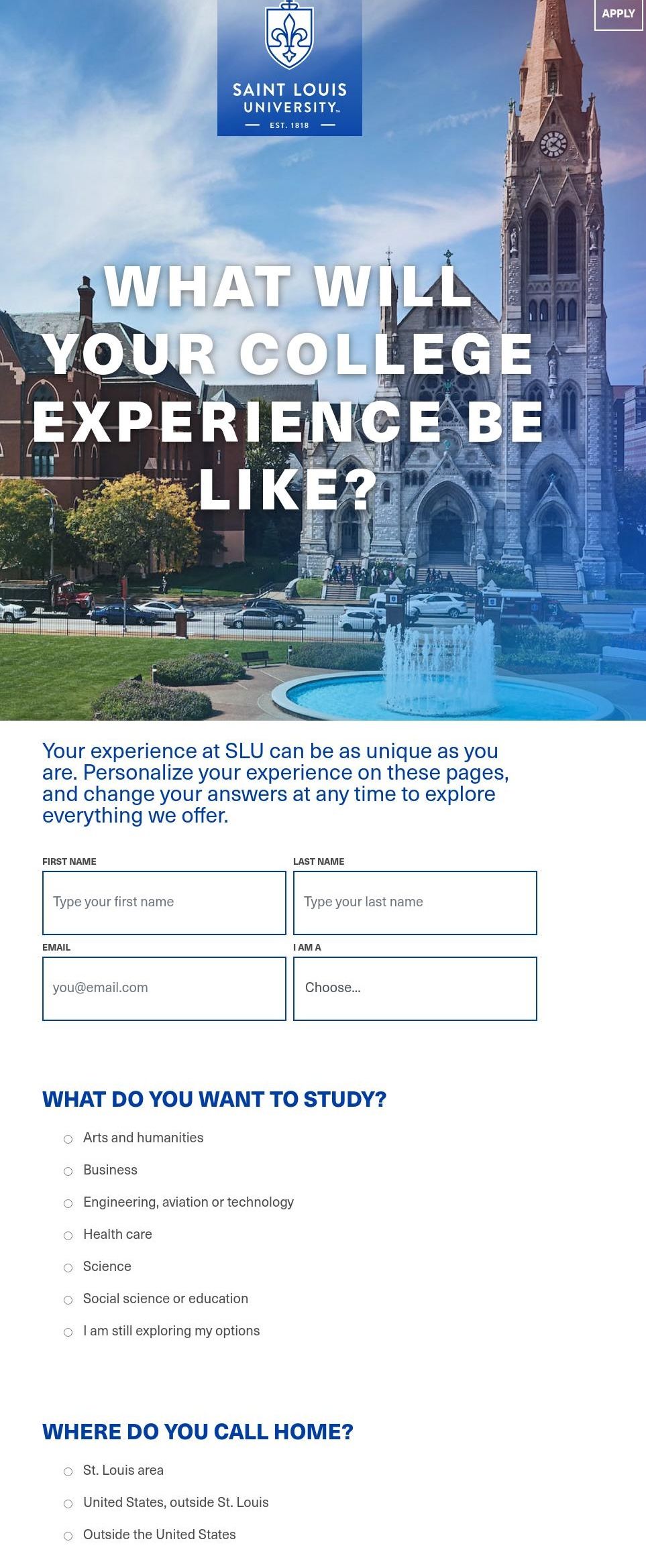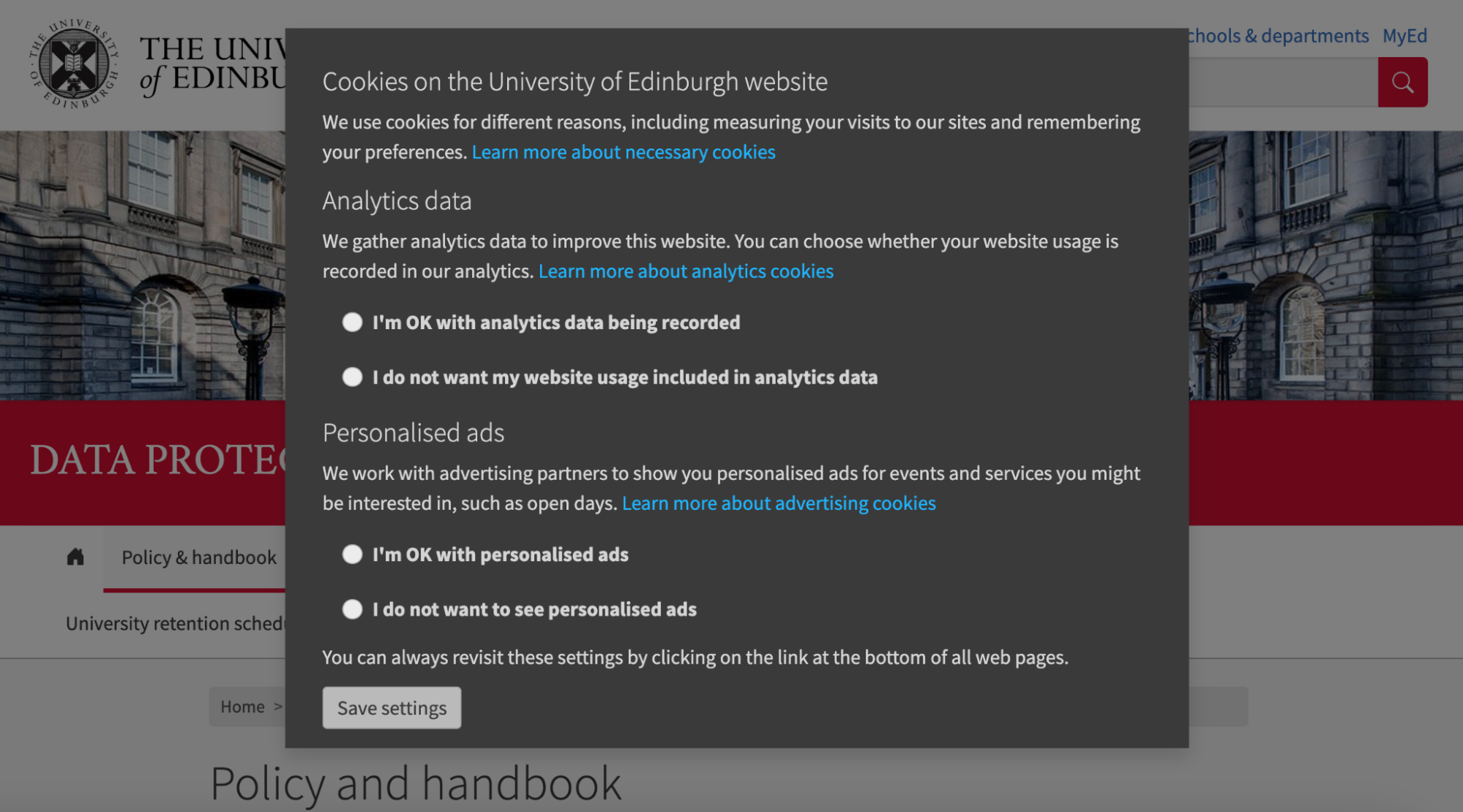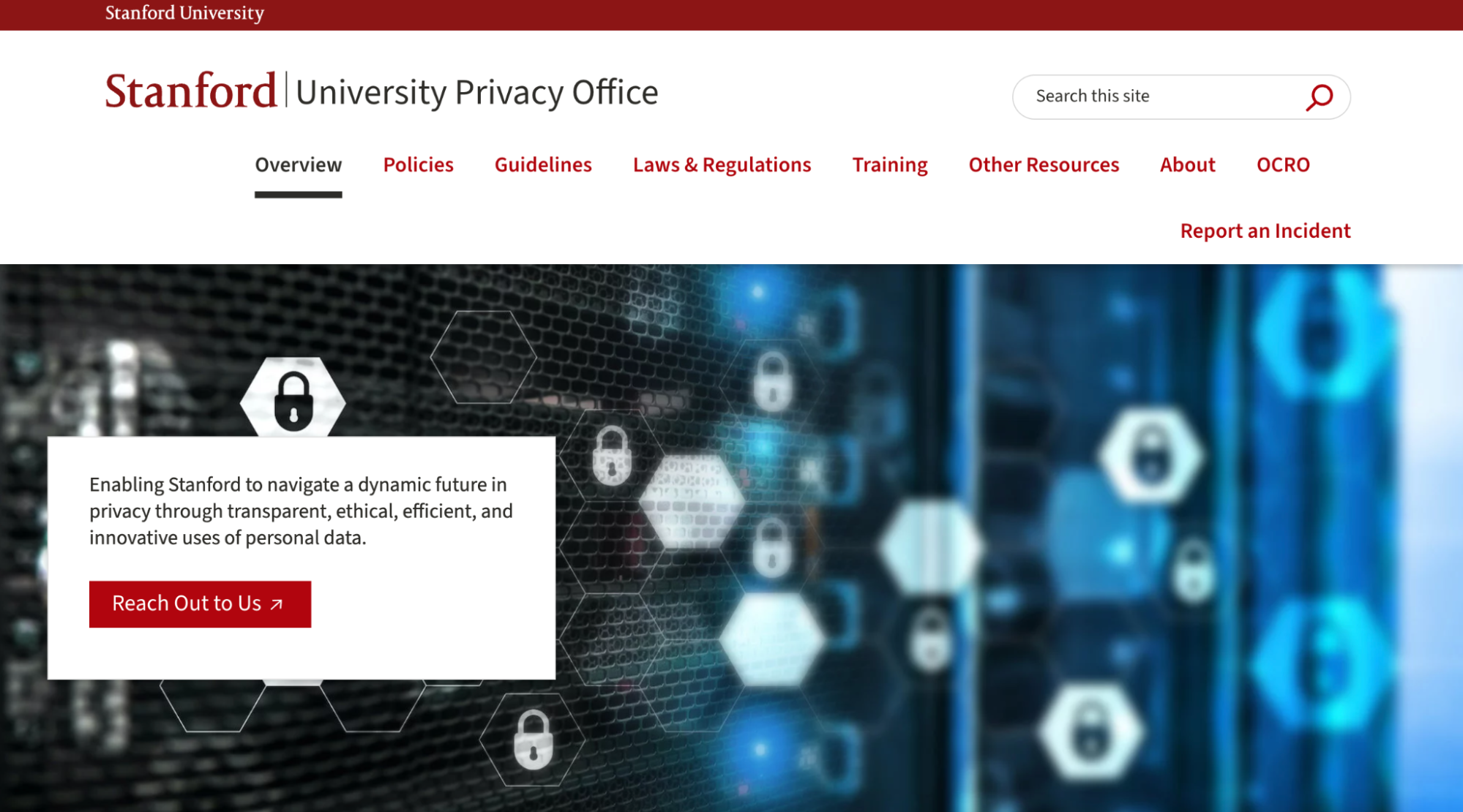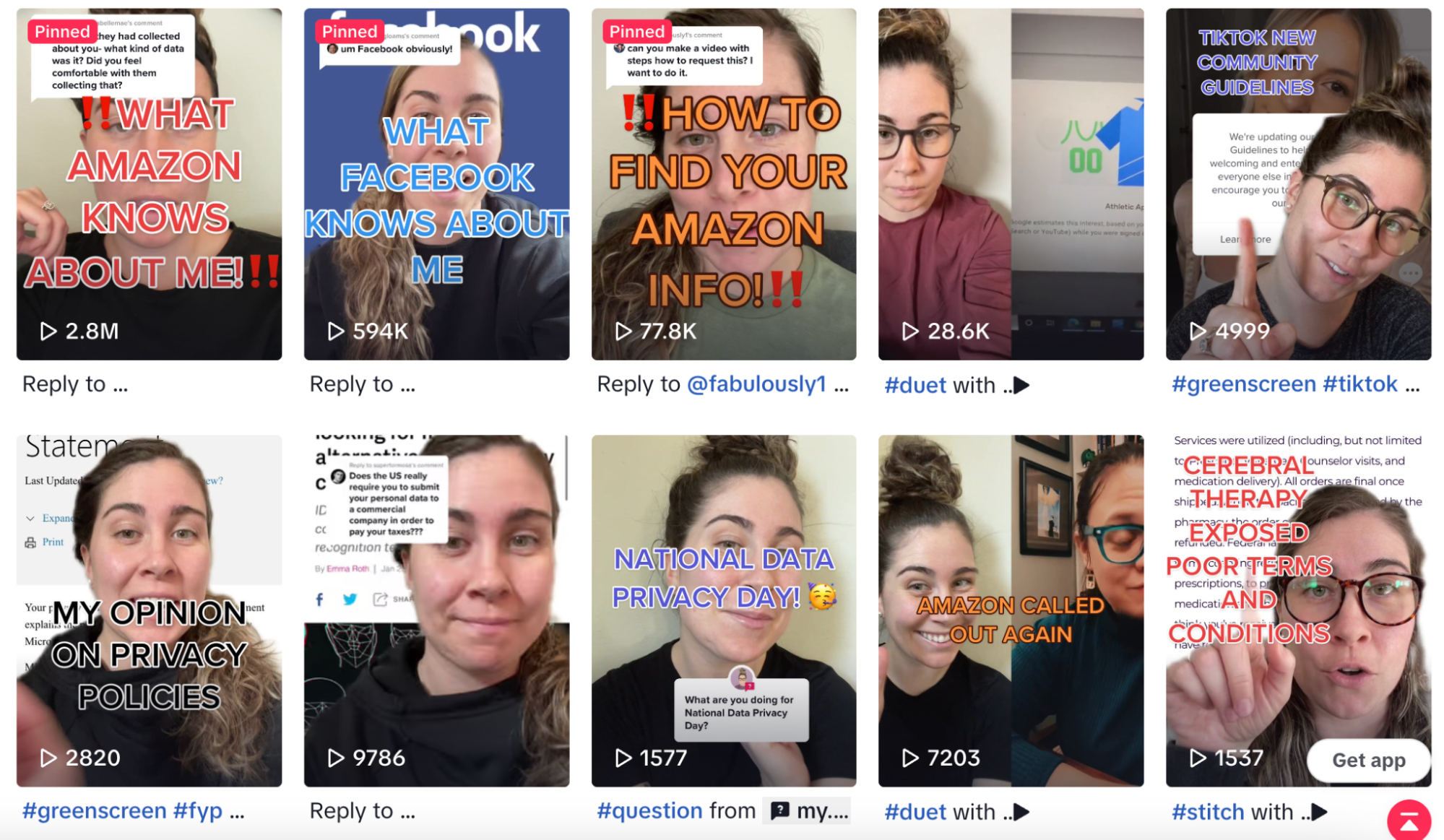Privacy legislation isn’t the most exciting topic in higher education. But it’s a challenge that can be turned into an opportunity.
As campuses attract diverse groups of students, faculty, and staff from around the world and establish global programs, they must comply not only with the European Union’s General Data Protection Regulation (GDPR) but also with international privacy laws and regulations.
It’s—first of all—mandatory…but it’s also a smart way of bolstering your university’s reputation for transparency, consent, privacy, and security by aligning marketing strategies to legislation.
We’ve seen how the limitations on data collection, storage, and use, have pushed universities to foster more authentic connections with their audiences and build community.
And by complying with GDPR and its international equivalents, you can:
- make it easier for global recruitment
- build trust with prospective students
- and better personalize content by filtering your audience since you know they’re consenting and interested in what you’re saying.
In this article, we’ll share an update on data privacy and protection legislation and three tips for higher education marketing practices.
Where are we now with privacy legislation?
GDPR was enacted in 2018, but we now have additional regulations and directives
- California’s Consumer Privacy Act (CCPA) and the Delete Act, with similar laws in dozens of other states in the US
- The EU-US Data Privacy Framework (formerly Privacy Shield)
- The UK’s version of GDPR
- The EU’s newer Digital Markets Act and Digital Services Act
- China’s Data Security Law (DSL) and Personal Information Protection Law (PIPL)
- …and more similar policies and laws all over the world
In 2022 and 2023, billions of euros and dollars in fines were issued, and an increasing number of European and US lawsuits were raised against global tech giants Google, Meta, Tikok, Amazon, and X (formerly Twitter) for data protection breaches.
And we’re now facing a cookieless reality as Google blocked third-party cookies in Chrome late last year, with Mozilla following suit and implementing an Enhanced Tracking Protection program for Firefox.
During WWDC 2023 (Apple Worldwide Developers Conference), Apple also announced significant improvements to Safari’s privacy protection.
So where does this leave us now?
In 2024, the conversation around privacy and AI will dominate policy-making.
AI Regulations and laws can be expected to develop internationally, following the rise of data-sweeping AI tools such as ChatGPT.
This shift has forced marketers across industries to reevaluate their strategies, moving from indiscriminate data gathering to building trust-based relationships with audiences.
Going beyond compliance: 3 tips for best-practice marketing
Higher education institutions are mission-driven, upholding values such as integrity, respect, accountability, and autonomy.
Going beyond legal compliance and supporting ethical marketing practices makes sense for universities, according to the EDUCAUSE Higher Education CPO Primer.
Here are three ways university marketing teams can maintain data privacy best practices and use the topic as a promotional tool.
1. Transparency and consent
Transparency and explicit consent can be differentiators for universities who want to build and maintain trust with students.
Universities that openly prioritize transparency, consent, and data security can gain a competitive edge and are more likely to foster positive relationships with their brand.
How can you include transparency and consent?
Here are some examples:
- Provide prospective and current students and staff access to their data, and allow them to review, correct, or even request the deletion of their information. This can make them feel they have a sense of control over their data privacy.
- Allow privacy to become commonplace by creating an environment where faculty, staff, and current and prospective students feel free to inquire, experiment, discover, speak, and participate in discourse on privacy.
- At every student touchpoint, clearly explain when students’ personal information is being captured, and how it’s being used, processed, and stored. This is especially important when using AI tools to process this information.
- Ask for explicit consent for e-mail campaigns with a clear opt-out option; for example, for alumni and donors.
- Being transparent and open in cases of breaches of data privacy.
The University of Edinburgh website places data policies front-and-center, clearly explaining what data is being captured and processed, and offering a link to their policy
2. Make data privacy exciting
While data privacy may seem dry, it’s actually quite a popular topic among young audiences.
Gen Z are digital natives and are savvy about how their personal data is used to give them more streamlined experiences— and expect something in return for disclosing personal information (like useful content).
Many universities have privacy offices and campus privacy officers handling the complex issues and concerns that are unique to higher education, and marketing teams can tap into this as a resource for content creation.
Stanford University’s Privacy Office section on their website offers information about the university's privacy policies, individual privacy rights, and the handling of personal data
While data privacy may not seem to be a “sexy” topic, tapping into the privacy office to promote your university’s work on data protection and share information through social channels can show prospective students your commitment and proactive culture towards privacy.
my.data.not.yours: Data Privacy TikTok is a content creator who makes informative short videos about data privacy, an example of engaging ways to share information from your privacy office and promote discourse
3. Ethical marketing
Ethical marketing is characterized by a departure from invasive, data-exploitative strategies towards a more respectful and consumer-centric approach.
Some examples of ethical marketing avenues are:
- Content marketing
- Social media
- Opt-in email marketing
- Community engagement and word-of-mouth
- First-party data capture (aka first-party cookies)

Saint Louis University’s Student Admissions Page asks website visitors a series of personal questions; a great example of transparent first-party data capture, allowing them to generate a personalized experience for prospective students
Practicing ethical marketing will reinforce your institution’s reputation and appeal to prospective students.
An opportunity as well as a chore
Complying with GDPR and other data privacy legislation is an opportunity for universities to create better engagement by demonstrating they value students and their privacy, and by providing more personalized experiences.
By promoting an ethos of transparency and responsibility when it comes to data, you can take advantage of and contribute to the growing privacy-first discourse, achieve your marketing goals, and make data privacy a little more useful in higher education marketing.
If your school or university has a unique approach to data privacy and GDPR, we’d love to know about it. Comment below or share it with us on social media.
Check out our three-part webinar series about GDPR for higher education, or subscribe to keep up-to-date with trends and challenges in higher education digital marketing.

:format()//media/Marketing-privacy-legislation-to-gen-z-students--RQ.png)


